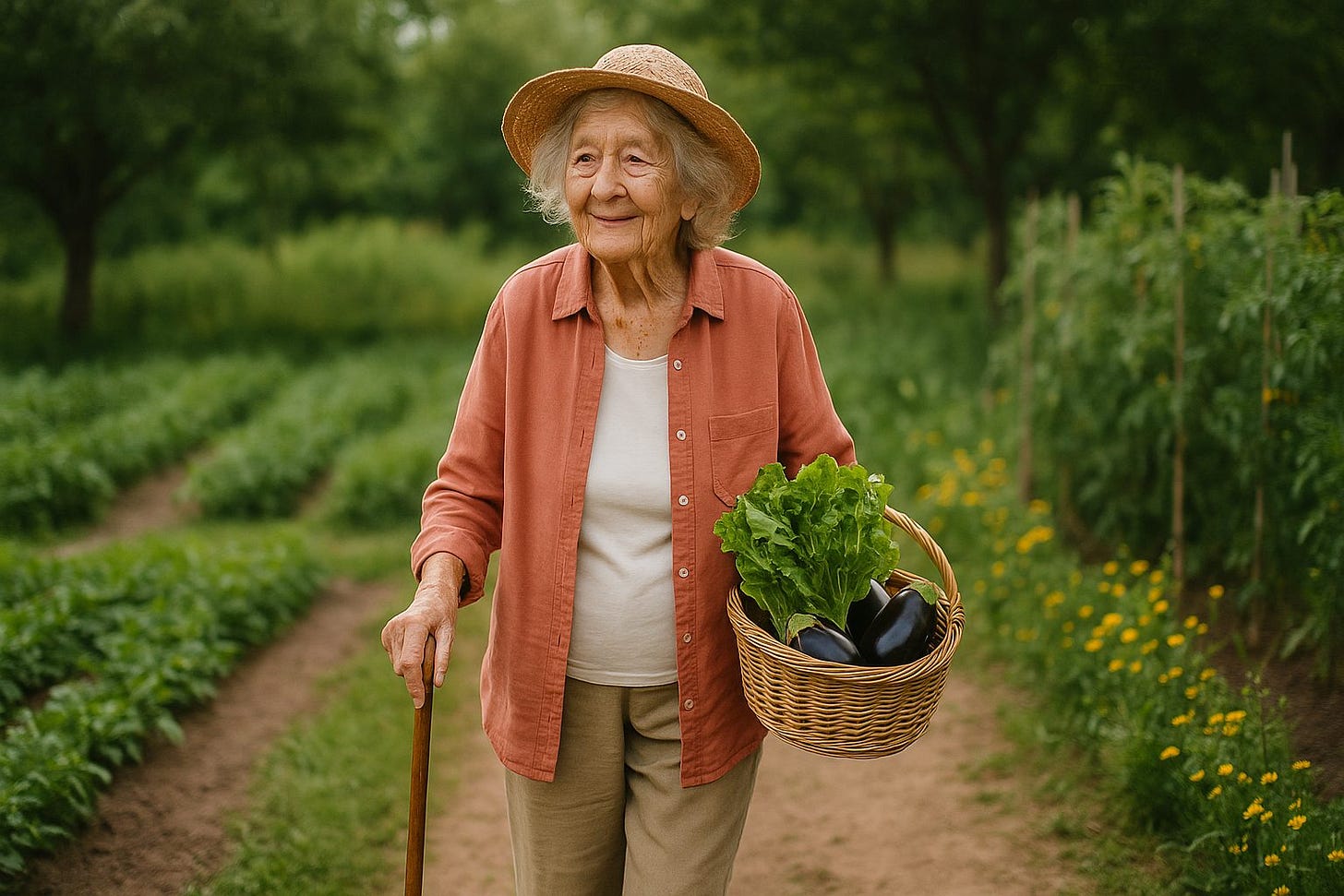5 Proven Habits of Centenarians (Backed by Science)
What we can really learn from those who've crossed the century mark
Imagine a 105-year-old grandmother greeting the dawn with a cup of tea, a gentle walk, and a phone call to her friends. What’s her secret? Is it genes? Luck? Or something far more accessible than we assume?
It turns out that while genetics plays a role in achieving extreme longevity, many of the hallmarks of centenarian lives are rooted in daily habits—habits you might adopt too. In this article, I dive into the five science-backed habits observed in people who live to 100+, combining the latest research, longevity studies, and wise anecdotes to sketch a portrait of how to age—not just survive.
Let’s step into the world of centenarians (yes, people over 100) and explore what they consistently do that helps them live long, mostly healthy lives.
1. Move Naturally, Daily (No Need for Marathons) 🏃♂️🌿
One of the most consistent threads among centenarians is movement—not in bursts of extreme workouts, but as a habit woven into daily life. In the “Blue Zones” (regions known for high longevity), the elderly tend to walk, garden, do household chores, or tend to simple tasks rather than chasing gym metrics.
A recent review of centenarian vascular health noted that centenarians across cultures engage in daily physical activity as a shared lifestyle trait. And in a large Chinese cohort of people aged 80+, those who exercised more often had higher odds of making it to 100.
You don’t need fancy gear or extreme routines. Think:
A morning stroll
Gardening
Cleaning, sweeping, carrying light loads
Climbing stairs instead of taking elevators
Why it helps: Movement keeps blood flowing, muscle mass preserved, and inflammation in check. Over time, small, regular motions add up.
Related - Forget 10,000 Steps: This Is The Real Daily Movement Goal For Maximum Lifespan
2. Eat with Wisdom: Variety, Moderation & Plant First
“Let food be thy medicine”—a cliche, yes, but often grounded in truth for centenarians. Across multiple studies, diet diversity (eating many types of foods) and a plant-forward approach correlate with better odds of reaching 100.
Many centenarians in longevity hotspots (e.g. Okinawa, Sardinia) eat modest portions, favor plants (beans, vegetables, legumes), and minimize processed foods. The Okinawan tradition of hara hachi bun me—eating until about 80% full—also appears tied to better longevity metrics.
Recent spotlight: the world’s oldest verified person, Maria Branyas Morera, ate yogurt three times daily (among other things), which may have supported a youthful gut microbiome.
That said, scientists caution: we cannot conclude her habits caused her longevity. Still, it’s suggestive of how everyday diet choices might matter.
Practical tweaks for you:
Aim for 20+ different foods a week (grains, legumes, nuts, fruits, vegetables)
Prioritize plant sources; treat meat as an occasional accent
Eat until you’re comfortable—not stuffed
Include fermented foods (e.g. yogurt, kimchi) for gut health
Related: 7 Everyday Foods That Secretly Harm Your Gut (and What To Eat Instead)
3. Guard Your Social Ties & Sense of Purpose
Longevity isn’t just about the body—it’s about heart, mind, and meaning. Centenarians overwhelmingly maintain strong social networks, a sense of duty, or purpose fueling each day.
In Blue Zones, people form “moais” (lifelong friend groups) or keep faith and community rituals. Research shows that social circles influence health habits: smoking, obesity, loneliness—they’re all “contagious.”
Sense of purpose (e.g. “ikigai” in Okinawa) is often credited with giving elders emotional resilience, boosting mental health, and even extending life.
One centenarian recently shared her secret: “Staying busy keeps me sharp.”
Your move:
Cultivate friendships you truly enjoy
Volunteer, mentor, engage in causes
Stick with hobbies that make your heart hum
Join community groups, local clubs, or faith communities
4. Stress Less — Rituals that Lower the Burn
Stress is a slow poison. Many centenarian communities incorporate daily rituals or pauses to shed tension—naps, prayer, social rituals, walking, or brief meditation.
In fact, one of the Blue Zones’ “Power 9” is Downshift: even in long-lived areas, stress happens—but people have habits to release it daily. Chronic stress fosters inflammation, accelerates cellular aging, and weakens immunity.
Even small practices help:
Five minutes of deep breathing
A short nap
A walk in nature
Mindful rituals (tea, journaling, gratitude)
Over time, these micro-resets collectively reduce the “wear and tear” on your body.
Related: 6 Quick Mindset Shifts To Reduce Stress and Add Years to Your Life
5. Don’t Smoke. Drink Lightly (If at All). Prioritize Sleep & Rest
One of the most reproducible findings: centenarians are overwhelmingly non-smokers or former smokers. Smoking accelerates nearly every disease known to man, so this isn’t surprising.
Alcohol? The data is murkier. In some Blue Zones, moderate drinking (1–2 glasses of wine daily, often with meals) appears in the habit stack. But in the large Chinese cohort, alcohol did not significantly boost odds of reaching 100.
Sleep and rest are less-studied but essential. Aging bodies need downtime to repair. Many centenarians nap, rest, or pace their day more gently. Also, they avoid “all or nothing” extremes—rest is integrated into life, not a luxury.
Bottom line for you:
Don’t smoke (or quit).
If you drink, do so modestly and socially—not as a stress escape.
Respect sleep: aim for quality, regular rest.
Listen to your body; take breaks when needed.
Also read: 7 Morning Habits That Switch On Your Longevity Genes
Final Thoughts & Caveats
Let me be upfront: you can’t simply copy a centenarian’s life and guarantee 100 years. Many of the studies are observational; correlation does not mean causation. Scientists warn against taking centenarians’ anecdotes as prescriptions.
But here’s what I believe: these habits cluster around resilience. They gently nudge your biology, psychology, and social world in a healthier direction. Even if you don’t reach 100, you’ll likely boost your health span—those extra years when you’re active, engaged, and mostly disease-free.
So here’s the challenge: start small. Pick one habit. Tweak it. Try for a month. Reflect. Build momentum and take it from there.


